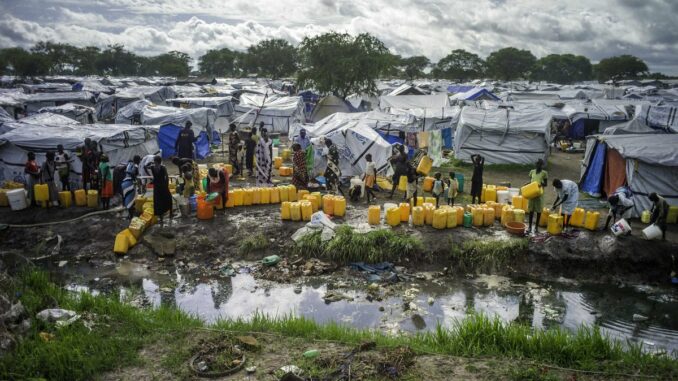
A growing humanitarian crisis is unfolding in Omdurman, where the surge in cholera-related deaths has overwhelmed already fragile healthcare facilities.
Despite the urgency, both the Federal and State Ministries of Health have remained tight-lipped about the death toll, even as the number of cases under treatment surpasses 800 weekly.
This alarming outbreak is the devastating aftermath of deliberate attacks on public infrastructure. The shelling of three power stations by the Rapid Support Forces disrupted water supply, compelling residents to resort to unsafe sources such as the Nile and shallow wells.
The resulting contamination has fueled a sharp rise in cholera infections, with Al-Nao Hospital alone handling up to 700 new cases daily. Medical staff, working under extreme duress, are facing critical shortages of supplies, while tents erected outside the hospital now serve as makeshift wards. The chaos is exacerbated by the evident exhaustion among health workers and the accumulation of patient waste in open areas.
International support, though arriving, remains inadequate. The World Health Organization has delivered supplies for an estimated 58,000 patients, while the National Medical Supplies Fund has dispatched over 120 tons of aid, with more en route. However, grassroots initiatives are filling critical gaps—local fundraising campaigns strive to procure IV fluids and transport for deceased patients.
In the midst of this turmoil, residents of Al-Thawra’s Eighth District are demanding the relocation of the quarantine centre after infections spread to their neighborhood, planning public protests to pressure authorities. The tragedy in Omdurman is no longer a health emergency alone—it is a resounding cry for systemic reform, humanitarian intervention, and a return to the sanctity of civilian life.
